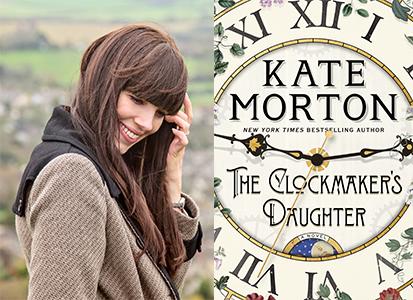Book review Of Kate Morton's The Clockmaker's Daughter

In our recent reading group session, we discussed The Clockmaker’s Daughter. Due to its selection for our group, I listened to the entirety of the book, an impressive 17 hours and 4 minutes, within just a couple of days before our meeting. This rush, especially at the start, made my engagement with the book feel interrupted and somewhat disjointed. By its latter chapters, however, I felt rewarded for the time I’d invested.
Contrary to the title’s hint, The Clockmaker’s Daughter doesn’t focus on clocks. It traces the lives of characters over roughly 150 years, all connected through their experiences at Birchwood estate on the Thames. The narrative shifts, but a prevailing voice is that of Birdie, a young ghost who vanished under mysterious circumstances in 1962. Once known as Lily Milington, Birdie still inhabits the house and interacts with sensitive children.
The
modern storyline is set in 2017 and follows Elodie Winslow, an archivist
researching the life of Victorian reformer, James Stratton. Through her work,
she discovers a photograph of a striking woman, reminiscent of a tale told by
Elodie’s late mother, a renowned cellist. The novel delves into themes of
theft, exploitation, war, love, and loss, all spurred by this connection.
A critique of The Clockmaker’s Daughter highlights its vast ensemble of characters and interwoven narratives, which could challenge its credibility and clarity. I share this sentiment, occasionally consulting a character map and plot timeline. Despite this, each narrative thread is well-crafted, bolstered by vivid character development. Tip’s portrayal, Elodie’s great-uncle, particularly resonated with me, shedding light on his life at Birchwood post his father’s World War II death.
In addition, Kate Morton made great use of setting. It is far more than a mere backdrop to the story; it’s integral to the plot’s direction. A hidden priest’s hole’s discovery could, after all, steered the events entirely differently on the burglary night and the subsequent shooting!
In summary, The Clockmaker’s Daughter is not an easy read. However, for those who appreciate historical fiction, enjoy suspense, and seek insight into diverse characters, it might just be the right pick.
Book Club Questions on Kate Morton’s The Clockmaker’s Daughter
1.
The Clockmaker’s Daughter offers various
perspectives across nearly two centuries. Can anyone initiate our discussion by
summarizing key events and characters?
2.
What
is Birchwood Manor’s significance to Elodie? And who is the woman in the
photograph? Discuss.
3.
Which
character resonated most with you and why?
4.
Were
you engrossed by Ada Lovegrove’s segment? How does it integrate into the
overarching narrative?
5.
Birchwood
Manor is almost a distinct character, laden with secrets. Do any of you feel a
deep connection to a specific structure, and why?
6.
Share
your thoughts on Mrs. Mack based on her depiction: “Mrs Mack was kind enough in
her way…”
7.
Delve
into Elodie’s relationship with Alistair. Why is she engaged to him, and where
do you see their future?
8.
Birdie’s
ethereal presence is noted: “Past, present, and future is meaningless…”. How
pivotal is her character in The Clockmaker’s Daughter? Do you believe in
spectral entities?
9.
Discuss
Lucy Radcliffe’s School for Young Ladies, its foundation, and eventual
disillusionment.
10. Explore the
friendship dynamics between Birdie and Pale Joe.
11. Were the
revelations about Pale Joe surprising? Were there other unexpected moments?
12. Storytelling plays
a crucial role, like the narratives shared with Elodie in her youth. Discuss
its impact and any personal tales you cherish.
13. Which theme stood
out prominently for you?
14. How did you find
the conclusion? Were you satisfied with the
final story
15. Would you suggest The
Clockmaker’s Daughter to others? Elaborate.
16. Does The Clockmaker’s Daughter encompass excessive subplots? How would you alter it, if at all?
Book Club Questions on The Clockmaker’s Daughter (for those who haven’t read the book!)
1.
The Clockmaker’s Daughter is a historical
fiction novel. What’s your preferred genre and why?
2.
Birdie,
a tangible ghost, can interact with certain children. Share any personal ghoststories with your reading group.
3.
Elodie’s
mother, a renowned cellist, passed away when Elodie was young. How might the
fame of parents influence their children?